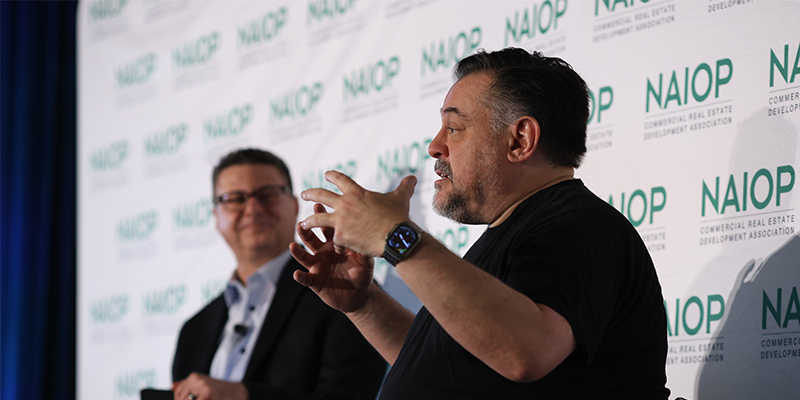By Jemicah Colleen Marasigan
The workday often begins on a parking ramp, not a lobby. That roll under the gate decides a lot: does it feel easy and welcoming, or like one more hurdle in the day?
At CRE.Converge 2025 in Toronto, a panel led by Matt Williams, executive vice president at Impark, made a simple case: treat parking like a guest experience and a business lever, not a utility.
For Blake Hyde, director of property technology at Cadillac Fairview, it starts with first impressions. Parking brings in revenue and, for many visitors, it’s the first touchpoint with a property.
“It should feel intentional, not incidental,” he said.
That first touchpoint matters more than ever. Adam Jacobs, Ph.D., head of research at Colliers, noted a change post-COVID-19 pandemic. Across Canada, suburban offices now have fewer vacancies than downtown, which he links to tougher commutes.
“Raising the price of parking doesn’t make more people want to use it,” he said. “It makes fewer people want to use it.”
Data echoed the sentiment. Stan Ivankovic, vice president, real estate sector, of Environics Analytics noted that price, availability and access top what parkers care about, and roughly 37% say subsidized parking would make them likelier to come in to the office.
So, what does progress look like on the ground? Begin with how people actually move.
“The world isn’t monthly anymore,” said Matthew Lindenberger, CTO at Reimagined Parking / Impark. Hybrid schedules don’t map to old monthly passes, so flex options — like shared weekday passes, visitor choices that don’t create overflow, and prices that guide behavior — meet people where they are.
Hyde argued for timing over toughness. The smart move, he said, is often a well-placed price drop that keeps the garage humming. Williams also pointed to simple suggestions: an early-bird rate that fills spaces before 8 a.m., or a special price on concert nights when the area is buzzing.
Think bigger, too. On show or sports weekends, cordon off a lower level and add a pop-up valet to turn it into premium parking. On that note, some lots previously moonlighted as NFL COVID-19 testing sites and, on slower days, lively pop-up markets. Ideally, the space can flex with the city – and when done well, the garage or parking lots serve the district and earns trust.
Make the fundamentals effortless, then let fresh information do the fine-tuning. Gates should open on cue, payments should clear instantly, and access, validations and visitor passes should sit in one simple flow a tenant can explain in a sentence.
“Technology is often the barrier,” Lindenberger said, but when systems connect, dozens of garages operate like one portfolio.
This is where data stops being a report and becomes a steering wheel (pun intended). Live dashboards replace month-old statements, so Hyde’s team can pilot a program on Monday and tune it by Wednesday. The same live view helps beyond the garage: earlier arrivals can cue earlier HVAC. Or a busy weekend calendar can scale cleaning and security.
The mobility picture is widening, too. Demand for electric-vehicle (EV) charging is real, though upgrades take power and patience.
“The biggest challenge is just getting the power to the building,” Lindenberger said, urging owners to plan and partner early. Meanwhile, smaller moves pay off. Secure bike lockers and scooter storage monetize cleanly with scan-to-open, pay-as-you-go access — and adoption (and data) shows up daily, not quarterly.
As Lindenberger said, it’s simple: “It’s not about creating demand, it’s about servicing the demand.”
Of course, people are the point. People returning to the office are watching their budgets. If parking feels fair, clear and woven into the day, they show up and they show up in a better mood.
Williams put it simply: “Treat them with respect. Do that, and the numbers follow.”

This post is brought to you by JLL, the social media and conference blog sponsor of NAIOP’s CRE.Converge 2025. Learn more about JLL at www.us.jll.com or www.jll.ca.








